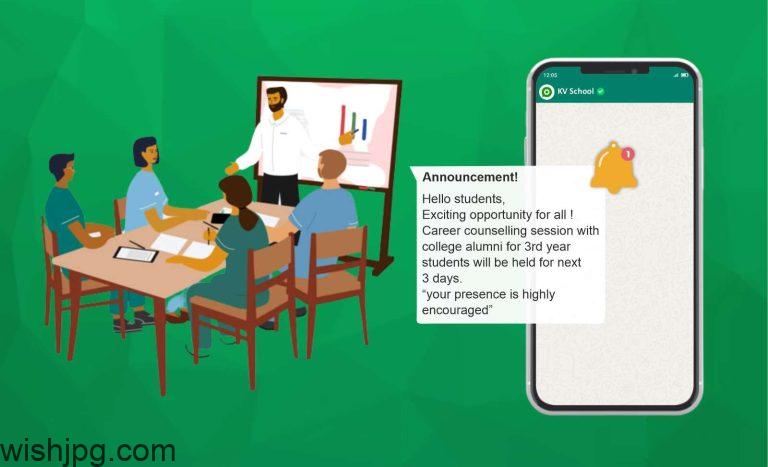Patients today demand a degree of efficiency and convenience in everything they do both inside and out. And, for the better. There are no longer long hold times on the phone, confusing portals on websites and endless email correspondence. Today’s hospitals are embracing the one tool almost everyone already has on their phone – WhatsApp. Installing a standalone WhatsApp Page at your hospital, will change how patients communicate with your institution and it will change how they feel and also make it easier for you to do your job.
The Foundation: Setting Up a Professional WhatsApp Business Page
It’s first necessary for the hospital to create an official WhatsApp Page using the WhatsApp Business API. The page is not a personal account but a professionally verified profile. From there it’s possible to publish all critical information such as address, operating hours, website link and brief description of services offered. This instant legitimacy helps patients feel secure and know that their messages are arriving from the right place. A well-organised WhatsApp Page becomes the front desk of the patient wherever they are—they are always just a few call away from the phone.
Streamlining the Booking Process with a Few Taps
The core function of the system is appointment management. Instead of calling, waiting for someone, a patient can just message their local hospital Facebook Page. They can be welcomed by a friendly reminder message with options to: “Book a New Appointment”, “Reschedule”, or “Cancel”. If the patient wants to book a new appointment a guided chat flow can allow him/her to ask the right questions like: “Doctor department”, “Date of visit”, “Time”. The interaction feels very personal and allows for incredibly less friction when booking care.
Sending Automated Reminders and Reducing No-Shows
One of the biggest challenges faced by any hospital is no-shows. The result is lost cost and lost revenue. A WhatsApp Web is a great platform to provide an automated, personalized reminder an hour or two beforehand. They don’t just have to be text messages, but they can include all of the information, like time, doctor, clinic name etc., you can confirm or even request for a rescheduled appointment right in chat, so the hospital can rebook cancelled slots quickly.
Pre-Appointment Preparation and Intake
You can set up a form (The Hospitals WhatsApp Page) for your patients to send forms and instructions before an appointment straight to the patient. So after booking a consultation you could send the patient an email with PDF of intake forms, instructions on how to prepare the patient for a specific test (e. g. fasting before a blood test) or a map to the clinic. This will make sure that the patient is ready for their consultation, thus reducing waiting time and improving the quality of care.
Handling FAQs and freeing Up Phone Lines
When people call hospitals switchboards for the very first time, many of their questions are very simple and repetitive. “What is your visiting hours? ” “Do you have a cardiology department? “What documents should I bring? ”A computerized WhatsApp Page can be programmed to give out automated quick answers to common queries and a feature menu with FAQ’s, allowing the answering of phone lines and staff time to answer more complex and urgent patient queries and thus increase efficiency overall.
Secure and Private Communication
An legitimate concern for health care is data privacy, as WhatsApp has end-to-end encryption to ensure all communications between the patient and the Hospital’s WhatsApp Page are secure – your name, medical questions or even your appointment details will remain private. As such hospitals will have to be careful not to exchange any very confidential medical reports through this platform, without using proper secure integration, but when it comes to scheduling and reminders, this is an efficient and secure channel.
Building Long-Term Patient Relationships
Benefits of talking with patients can go beyond making one trip to a doctor’s office. It can also be used to build relationships for life. When a patient visits the hospital can use the chat history to follow-up with them, check up on a patient’s recovery, or notify the patient that it is time for their next appointment. This kind of proactive care helps transform what once was a transactional process into a trusted relationship that can create loyalty and satisfaction.
Conclusion
Integrating a WhatsApp Business strategy is no longer a novelty; it is now a strategic necessity for hospitals, in an effort to remain relevant and patient-centric. A dedicated WhatsApp Page for appointments is an inexpensive and high-impact solution, reducing paperwork burden, reducing no-show rates, providing the modern, communicative experience patients have come to expect, and significantly increasing accessibility, efficiency and overall health.
